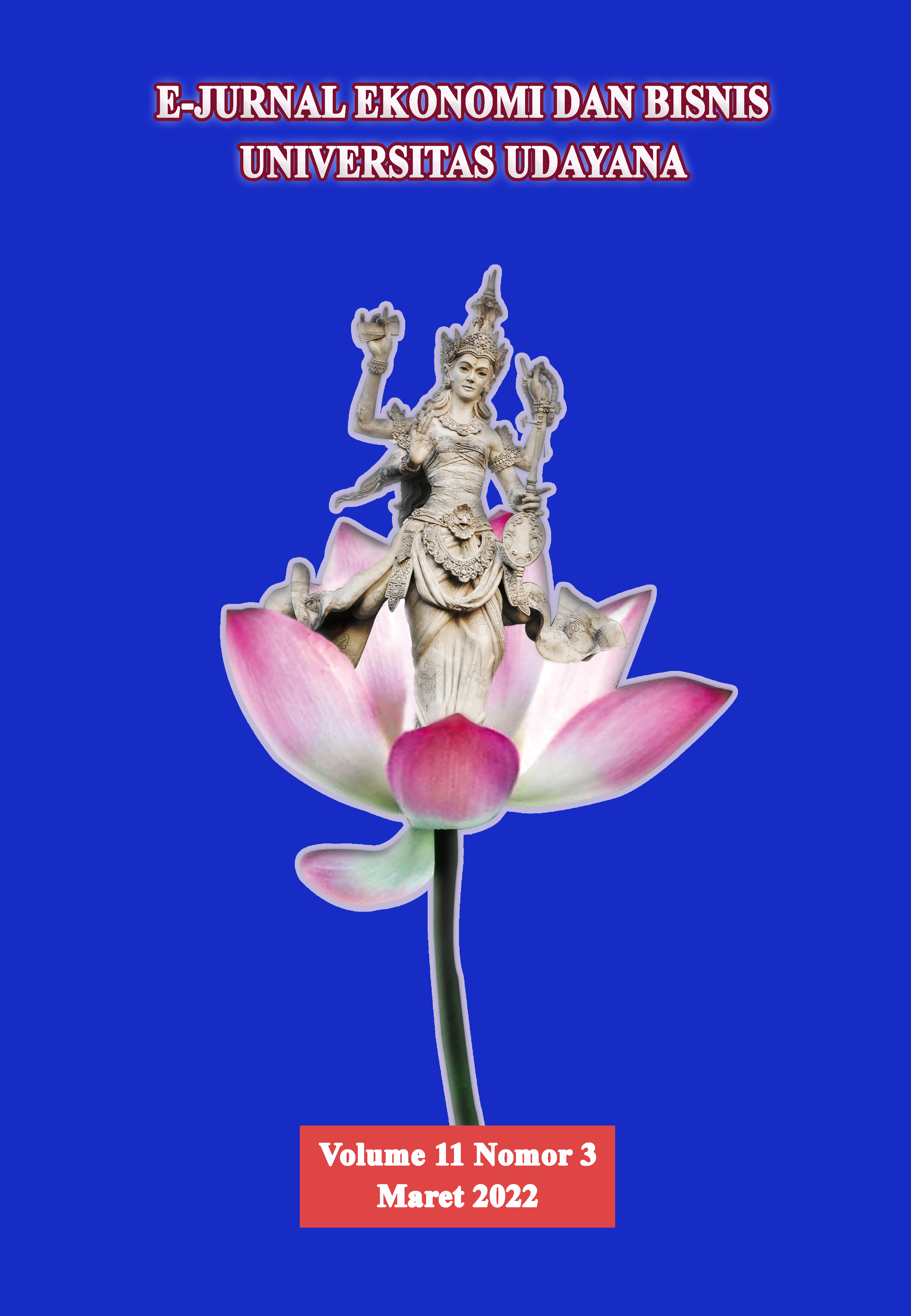PENGARUH KINERJA MAKROEKONOMI TERHADAP INDEKS HARGA SAHAM GABUNGAN (IHSG) DAN GOVERNMENT BONDS DI INDONESIA
Abstract
This study aims to 1) analyze the direct influence of Inflation, Interest Rates and Exchange Rates on the Jakarta Composite Index (JCI) in Indonesia. 2) analyze the direct influence of Inflation, Interest Rates, Exchange Rates and JCI on Government Bonds in Indonesia. 3) determine the indirect effect of Inflation, Interest Rates, and Exchange Rates on Government Bonds through the JCI in Indonesia. The data used in this study is secondary data from 2010 to 2019 sourced from the Central Statistics Agency (BPS), Bank Indonesia and the Indonesia Stock Exchange. The analytical technique used in this study is path analysis. The test results show that 1) Inflation has no direct effect on the Jakarta Composite Index. Interest rates do not directly have a significant effect on the Jakarta Composite Index in Indonesia. The exchange rate directly has a positive and significant effect on the composite stock price index in Indonesia. 2) Inflation has no direct effect on government bonds in Indonesia. Interest rates do not directly have a significant effect on government bonds in Indonesia. The exchange rate directly does not have a significant effect on government bonds in Indonesia. The Jakarta Composite Index does not directly have a significant effect on government bonds in Indonesia. 3) Inflation, interest rates, and exchange rates do not indirectly affect government bonds through the Jakarta Composite Index.


















